Natural Skin Care Ingredients are Superior to Chemicals
Natural Skin Care Ingredients are Superior to Chemicals
How many beauty products have you owned where you looked at the ingredients list and you couldn’t recognize half of it? There are so many companies in the skincare and beauty industry that use harsh chemicals that are completely unnecessary. There are also a lot of companies that have seen consumers’ reactions to these ingredients and are trying to build a more organic brand. These days, it is common to see labels like “paraben-free” and “sulfate-free.” This helps companies ensure that their products are high-quality.
When you use products on your face and body, you do not want anything but the best. Not knowing what the ingredients are on your products can be confusing. “What is polyethylene and why is it in my body wash?” There are a number of common ingredients (including polyethylene) that we now know are harmful.
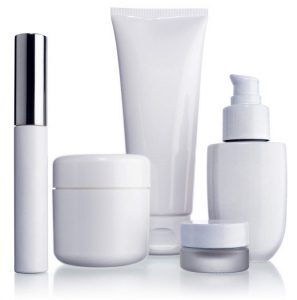
This is why consumers have come to prefer natural skin care ingredients rather than complicated chemicals they are not familiar with. To understand what products to carry, you first need to understand some of these ingredients and what deems them harmful.
Ingredients to Avoid
For some customers, they will simply refuse a product if they see a lot of ingredients that sound unfamiliar or scientific. They need to so some research to see which ones are actually safe and which ones are not. There are also a few substances that sound innocent but may be questionable.

Ingredients You May Have Heard Of:
- Parabens: These are preservatives that are meant to make the formula last while preventing mold and other bacteria from growing. This sounds like a good thing, but it comes at a cost. Researchers have proved that parabens can increase your risk of breast cancer. This is because it acts like estrogen, which your skin can absorb. In men, it can decrease sperm-count.
- Sodium lauryl sulfate (SLS): You can find this in shampoo, body wash, and even toothpaste. It can cause skin irritation, sores, and eye damage if it gets in your eyes. Data has also linked SLS to acne and cysts.
- Butylated hydroxyanisole (BHA): This is found in perfumes and has many dangers. It can cause liver damage, stomach cancers, and skin depigmentation. It can also harm hormone levels and the reproductive system. Because of these effects, Japan banned BHA from being used in food and cosmetics.
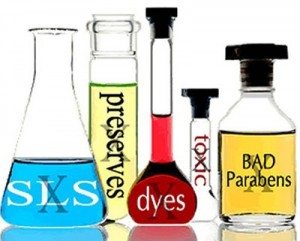
Ingredients You Skip Through
- Triethanolamine: This is also called TEA and companies use it for its scent and to balance pH levels. It commonly causes allergic reactions for people with sensitive skin. Tests also show a connection to cancer and cell mutations.
- Polyethylene: This is a plastic found in body washes and scrubs. The plastic beads are an exfoliant which are supposed to be gentler on your skin in comparison to natural exfoliates. However, it usually brings along a contaminant called 1, 4-dioxane, which is a carcinogen and a skin irritant. They also cause water pollution once they go down the drain, only for fish and other sea creatures to eat them.
- Tetrasodium EDTA: This is a toxic ingredient which also aides other chemicals in penetrating your skin. With the right combination of chemicals, this can be a very harmful ingredient to use.
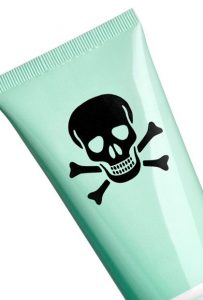
Ingredients You Didn’t Expect
- Aluminum: Most people are familiar with aluminum but maybe not in their skin care routine. It is a common ingredient in deodorants, which many consumers are beginning to boycott. Studies have shown that absorbing aluminum correlates to breast cancer and certain brain disorders, as well.
- Formaldehyde: You may not be familiar with formaldehyde as an ingredient for cosmetics. After all, it is also used to make walls and furniture. In beauty products, its purpose is to preserve the product from growing bacteria. It is a known carcinogen. It can cause allergic reactions along with damage to the immune system. In an ingredients list, formaldehyde goes by a few different names. Some of these include: bronopol, hydroxymethylglycinate, and diazolidinyl urea.
- Fragrance: You might not think of fragrance as a harmful ingredient, but in many cases it is. The FDA allows companies to list a number of chemicals and scents simply as “fragrance” to keep the integrity of their trade secrets, lest other companies replicate their formula. However, that means that consumers cannot see what they are putting on their skin. Many of the chemicals that companies list as “fragrance” are skin irritants and can disrupt hormone levels. People with allergic tendencies tend to react poorly to fragrance ingredients.
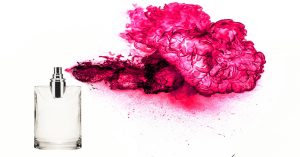
Packaging can be Harmful, Too
Customers may not even consider the dangers of certain packaging. Cheap plastic bottles can be just as bad as some of the above substances. Plastic bottles will damage a product even if it has a natural formula. This is due to BPA, or Bisphenol A. Some plastics contain BPA which leaks into the product it’s holding. It has a quality that replicates estrogen, which your skin can absorb to change your hormone levels.
This is why you should make sure to either buy products in glass containers, or find plastic bottles labeled “BPA-free.”
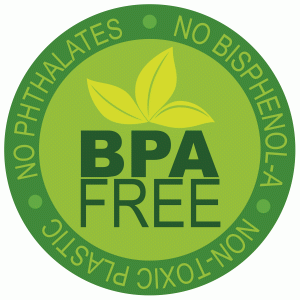
Moving Forward
Luckily, many companies exist today that dedicate themselves towards creating natural and safe products for customers to use and feel good about. It can be a nuisance to scour ingredient lists and labels to see what is safe and what is harmful, but taking care of your body is in everyone’s self-interest. The good news is that it’s becoming easier every day to find organic skin care.
By selling products with natural ingredients, you can contribute to the ever-growing demand for them. Consumers who want to see healthy products on the shelves are becoming the norm. If you consider expanding your inventory to include organic products, then customers will thank you.
There is a lot of potential in selling skin care products without harsh chemicals. People are willing to pay a little extra to ensure that the items they use on a daily basis are safe.
Learn more about selling organic.




